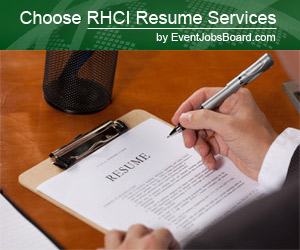 Appropriate business etiquette is expected of everyone, especially at corporate events. However, few are trained in the art of good manners. That means most people learn meeting etiquette and how to conduct themselves at business events “on the job.”
Appropriate business etiquette is expected of everyone, especially at corporate events. However, few are trained in the art of good manners. That means most people learn meeting etiquette and how to conduct themselves at business events “on the job.”
Of course, not everyone is completely at ease with knowing whether they are conveying proper business etiquette to corporate hosts, colleagues and other guests.
Keep in mind, the purpose of etiquette is to create an environment that allows everyone to feel comfortable. The following Q&A provides some business etiquette tips for meeting environments.
1. When should you respond to an RSVP?
Event invitations will provide most of the important information of an event, including details about the host, type of event, purpose (even as much as a brief agenda), location, time, specific instructions, and – of course – the RSVP.
Events today rely on a variety of RSVP options, including email, phone, mail in cards, and more. It is important for guests to respond quickly when they receive an invitation, and it’s best to respond within a week. If you must decline at the last minute, please notify the host prior to the event or first thing the next day with sincere regrets.
2. What should you wear to an event?
Hosts and guests err on the side of conservative sensibility: dress well and in good taste (everything should always be pressed). That said, most event invitations will provide direction:
- Business attire (suits and dresses)
- Black tie/black tie optional (more formal evening wear)
- Business casual (trousers/khakis with long sleeve shirts)
- Jackets and ties required (as instructed)
Some events and venues may advise other casual wear, such as golf, tennis, horse racing, resorts, etc. Organizers will be specific about attire requirements.
3. When should you arrive for an event?
The event host spends significant time and resources to plan and execute an event, so most people know the answer to this question: be on time! If you are a representative of the host, the answer is that you should arrive up to 30 minutes early (you will be given a time, show up when requested).
If you are a guest, understand that the organizer has been selective with the invitation list. Many invitations will include a brief agenda that highlights when guests may arrive for the event, typically providing a window of 15 to 30 minutes for registration and welcome reception times.
Also, it’s important to stay as long as possible or to the conclusion of an event.
4. When should you extend a handshake at an event?
Always upon arrival and departure. This is an easy rule that few people violate. Greet everyone with a firm, sincere handshake, a friendly smile and direct eye contact. However, when approaching a group of individuals, it’s important to note that guests should always shake the hand of the host first.
Of course, there are scenarios when handshake greetings aren’t possible, such as when both hands are full. In those situations, either party may nod and use some sort of other body gesture to convey the greeting. There are always exceptions to the rule, so you should also be familiar with the customs of some groups of people who may not always shake hands directly.
5. How should you introduce people in a group at an event?
Most people will find themselves at some point introducing various individuals at an event, especially when they are the ones who will be expected to know all parties. But what’s the order of introductions? Simply remember to rules:
- Introduce lower ranking individuals to higher ranking individuals.
- Remember to include titles (e.g., Dr., Judge, etc.) and name prefix (e.g., Mr., Mrs. Ms.).
6. What should you talk about at the event?
It’s important to have strong listening (don’t interrupt) and conversation skills in group situations. This means maintaining open body language (stand up or sit up straight, don’t cross arms, and maintain good eye contact) and showing interest in what others have to say.
Contribute to conversations by being able to speak to a variety of subjects, find topics of mutual interest and avoid correcting what others have to say. Make sure to involve everyone in the group in the discussion (and not just one or two). Encourage people to talk about themselves, and be graceful when providing and/or accepting compliments.
It’s unfortunate to add the following, but necessary for some: avoid the use of foul language and slang in conversations.
7. What shouldn’t you talk about at the event?
Just as it’s important to understand what to talk about, there are several topics that should generally be avoided:
- Personal finance topics
- Personal health topics (yours and others)
- Divisive topics
- Gossip
8. When should you defer extra courties (deference) to others at an event?
It may sound old fashioned, but it’s very important to let people know that you hold them in high esteem. And the act will usually not go unnoticed by the recipient. Several examples (but certainly not an all inclusive list) of when deference is important at an event:
- Follow the lead of others (e.g., host) to know when/where to sit.
- Hold doors for others.
- Don’t assume empty seats are available.
- Allow others to take the better seat.
- Wait to speak until others acknowledge you.
- Wait for the host before taking a first drink.
- Wait to eat until after everyone is served and the host has begun.
9. What other business etiquette rules should be kept in mind?
- Never drink more than two alcoholic drinks.
- Allow the event host to make the first toast.
- Notify hosts of any dietary restrictions prior to an event.
- Understand how to use flatware (eat outside in).
- Glassware is placed to the right.
- Bread plates will be placed to the left.
- Place the fork and knife in the 4:00 position when finished.
- Place napkins on the chair seat or arm when briefly stepping away.
- Research the event topic and venue before arriving.
- Thank the host in person prior to leaving.
- Send a “thank you” note to the host within a week.
May not be reproduced. Originally Published on About.com by Rob Hard.




